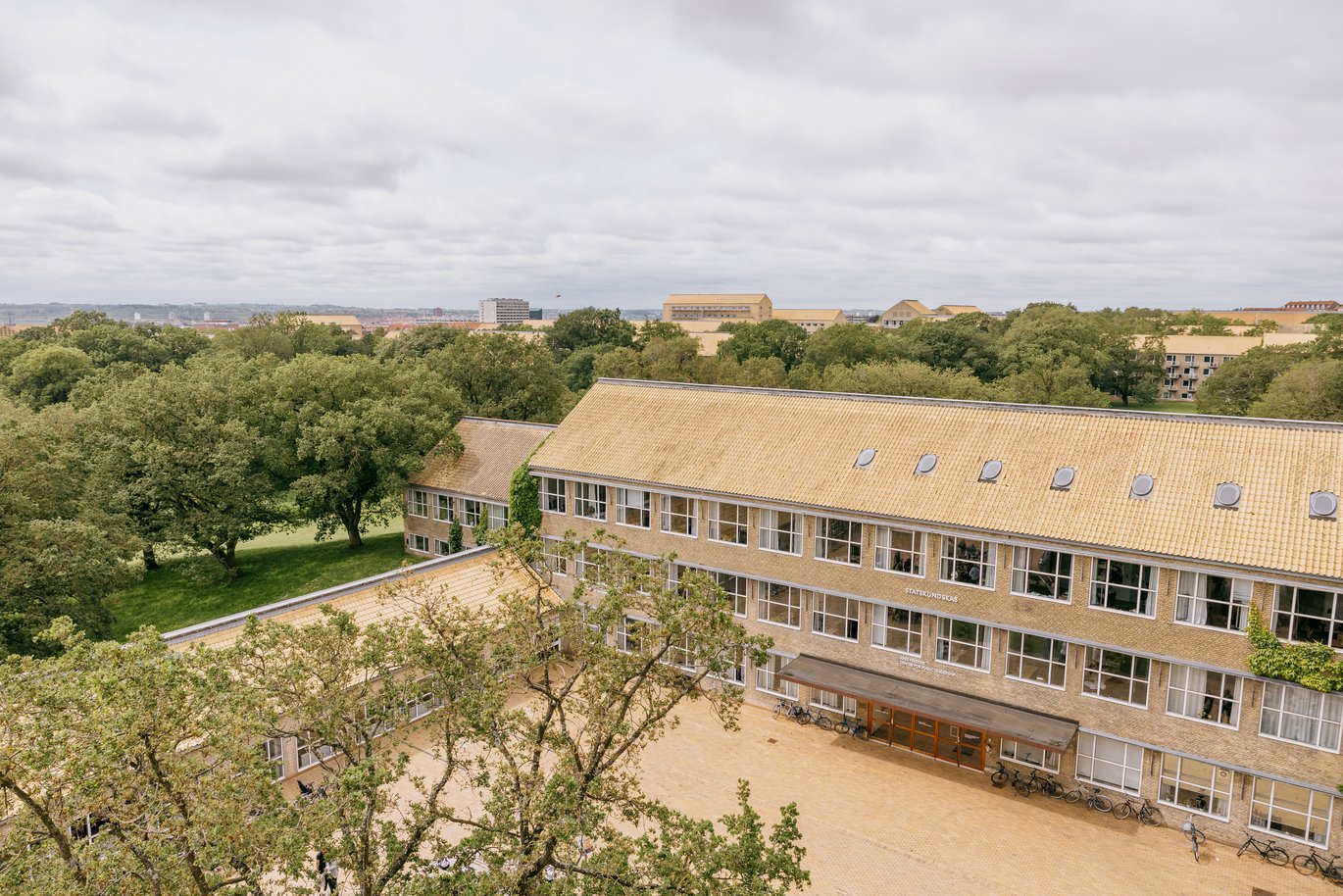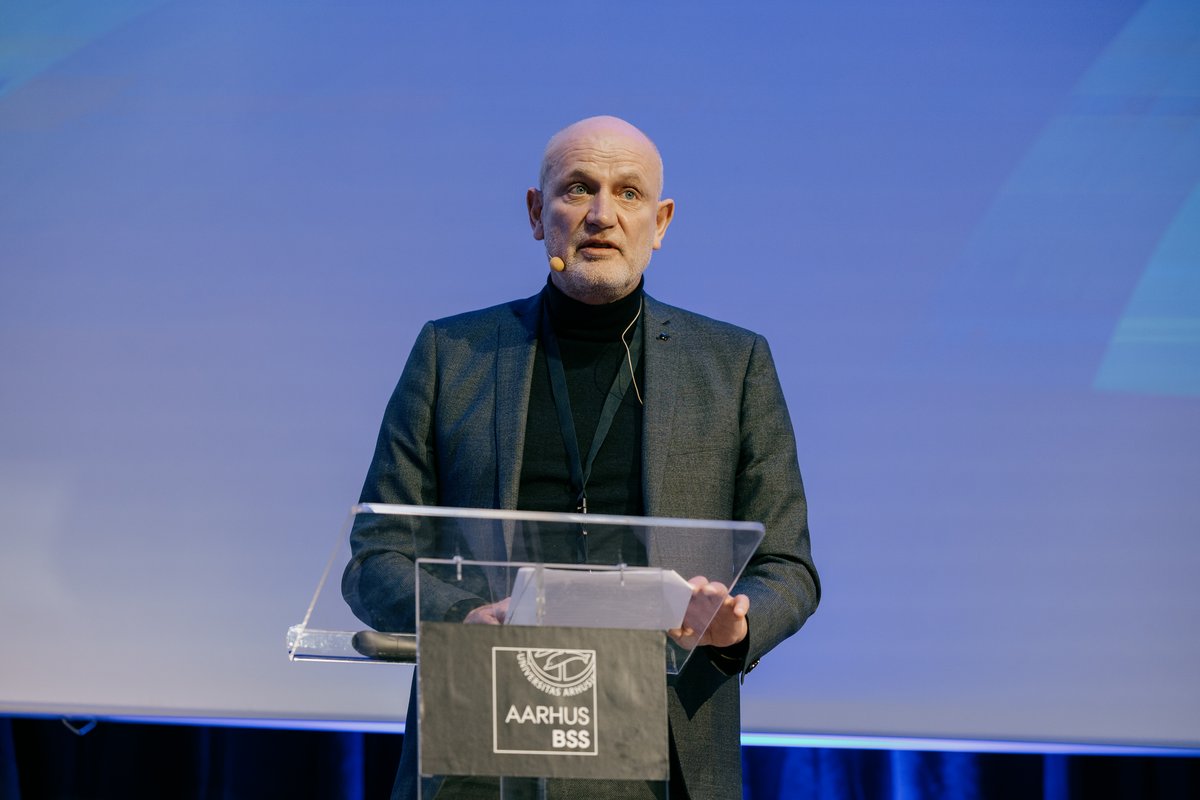Aarhus BSS to redesign its two largest Master’s programmes and cut admissions to several Bachelor’s programmes
The large Bachelor’s programmes Law and Economics and Business Administration won’t face resizing measures, according to the faculty’s plan. But the Master’s programmes in these subjects will be redesigned.

Just like the other faculties at AU, Aarhus BSS needs to cut enrolments on its Bachelor’s programmes, and it now has a plan for how to achieve this.
Aarhus BSS has been asked by the senior management team to cut 218 Bachelor’s student places compared with its average intake between 2018 and 2022, which corresponds to 9.8 per cent. Between 2018 and 2022, the faculty admitted an average of 2,233 students a year, but this figure fell to 2,156 in 2023. Compared with 2023, Aarhus BSS needs to cut its intake by 141 places. Bachelor’s admissions at Aarhus BSS will be capped at 2,015 places as a result of sector resizing.
Aarhus BSS will make the following cuts to the Bachelor’s programmes selected:
- Business Administration and Commercial Law (18 places)
- Economics and Business Administration in Herning (BTECH) (26 places)
- Economics and Management (21 places)
- Political Science and Social Science (43 places)
- Psychology (33 places)
In an article on its website, Aarhus BSS writes: “All the affected bachelor’s programmes will be reduced proportionally by the same factor (approx. 14 percent). In order to achieve the same relative reduction at BTECH, which implies that the intake on the Danish-taught BSc in Economics and Business Administration is put on hold (36 places), the admission to the English-taught BScB at BTECH will increase by 10 additional student places, amounting to a total reduction at BTECH of 26 student places. At the same time, in light of previous decisions regarding the relocation of ITKO from Aarhus to Herning, the number of student places at BTECH will increase by 117 places.”
Source: Aarhus BSS
To achieve this reduction, the faculty has chosen to cut places on Business Administration and Commercial Law, Economics and Business Administration (in Herning), Economics and Management, Political Science, Social Science, and Psychology. Aarhus BSS will reduce admissions to these degree programmes by the same proportion – approximately 14 per cent. By naming these six degree programmes, it’s clear that others will escape resizing measures. These include Law and the Economics and Business Administration programme in Aarhus.
Master’s programmes to be redesigned
But it’s precisely Law and Economics and Business Administration that the faculty has identified as the Master’s programmes with the “best potential” to be successfully converted to shorter or more career-focused programmes. These are the two largest Master’s programmes at Aarhus BSS. The faculty has emphasised that the Master’s programmes in Business Administration and Commercial Law (cand.merc.jur.) and Business Economics and Auditing (cand.merc.aud.) will remain two-year programmes.
The Master’s degree reform, which was approved by a political majority in June 2023, calls for many Master’s degree programmes in Denmark to be redesigned to make them either shorter or more career-focused.
The reform also stipulates that more places should be made available for international students on English-taught Master’s programmes, and Aarhus BSS has received half the number of extra annual places awarded to AU as part of this initiative. This amounts to an additional 90 places, which will all be allocated to the English-taught Master’s degree programme in Economics and Business Administration.
We’ve listened to employers
Thomas Pallesen, dean of Aarhus BSS, explains that the faculty leadership team took onboard the views of employers when making its decision. Put simply, the faculty have concluded that Bachelor’s programmes should not be cut if the corresponding Master’s programme is being converted – and vice versa.
“We’ve been in dialogue with employers in our sector, and they weren’t overly positive about having shorter Master’s programmes in the same subjects as the resized Bachelor’s programmes. But they were more positive about converting the Master’s programmes that we had selected. That’s why we believe that this proposal is the best overall option available to us. We’ve taken a lot of things into consideration to get to this point,” says Thomas Pallesen.
Some people might think that the degree programmes being cut are actually the lucky ones because they don’t have to change their Master’s programmes?
“I think that depends on your perspective. Some people will think it’s a shame to have to cut places on popular degree programmes. I don’t think anyone believes there are any winners in this,” says Thomas Pallesen.
Drop-out rates play a role
The faculty leadership team has also looked at which programmes have the highest drop-out rates. These include Economics and Business Management (in Herning) and Economics and Management.
“We also need to look at where we can best utilise our student places. If a student drops out of one programme, that’s a place we can’t use elsewhere. We also need to consider that we’re suspending admission to the Danish-taught Economics and Business Administration in Herning but expanding our English-taught programme in Herning (by 10 places, ed.),” says Thomas Pallesen.
In relation to the 90 new places on English-taught Master’s programmes, the dean also notes that, in the long term, the faculty intends to award 15 of these to the Master’s degree programme in Economics and Business Administration in Herning.
All Master’s programmes will be reviewed
Although only two Master’s programmes will be converted to shorter or more career-focused programmes, the dean explains that the faculty will review all the Master’s programmes it offers.
“This is an opportunity to conduct a major review of all our Master’s degree programmes to see whether they offer the correct content and whether this content is progressing as we would like,” says Thomas Pallesen.
The final terms for the conversion of Master’s degree programmes at Danish universities are still not in place, because the final report of the Master’s Committee – which was expected at the end of October – has still not been published. The Danish Ministry of Higher Education and Science has informed Omnibus that it’s possible the report will be published in mid-November. This means that the faculty’s plans are still subject to change.
“We chose to announce our plans now because we needed to register our Bachelor’s resizing plans by 1 November. We could have just registered these plans without saying anything about the Master’s programmes we intended to redesign. But we chose to announce everything now to provide the context for our decisions. Of course, our plans are subject to the recommendations issued by the Master’s Committee,” says Thomas Pallesen, who also explains that the faculty’s plans are in accordance with the agreements Aarhus BSS made with its counterpart faculties at other universities, who have also been informed of the faculty’s proposal.
Staff and students will now be able to have their say on the plan. The dean encourages these discussions to take place in the departments and through the official channels.
Translated by Sarah Jennings


